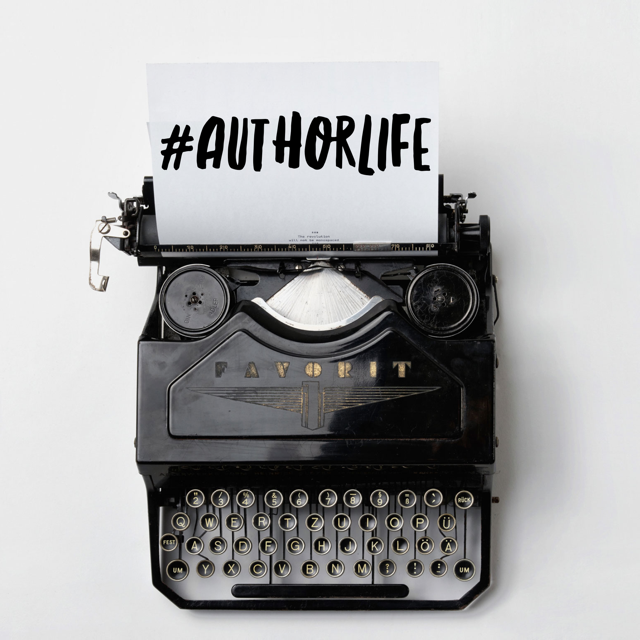
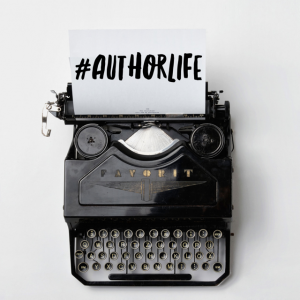
Are authors eccentric?
I was once labelled eccentric. As I was only a teenager at the time, I wasn’t sure if this was an insult or not. Now I’m older, though, I wear the title like a badge of honour, because it means—in theory at least—I might just be an Interesting Person. Have you ever been given a label or a nickname you considered an insult at the time but have since embraced?
I sometimes wonder if the United Kingdom doesn’t have more than its fair share of eccentrics—I’ve certainly come across a great many over the years. Do I gravitate towards them because I’m odd myself? Are all authors just a little bit odd, I wonder?
Anyway, I decided to take a ramble through various examples of eccentricity I have encountered in this country. You will notice an historical theme running through them all but I can’t help that—I write historical books!
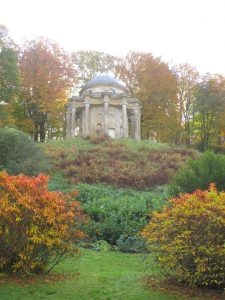
One great example of English eccentricity is the 18th-century fashion for folly building. These structures take the idea of garden ornaments to another level. Follies were an ostentatious way for the aristocracy to demonstrate how much spare cash they had. Not everything was done in good taste; I’ve seen some ghastly grottoes in the grounds of stately homes, but some rather lovely Palladian-style temples and bridges too.
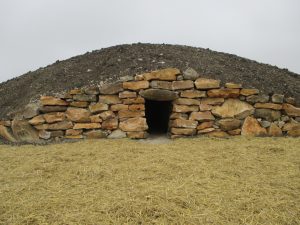
I love follies so much, I’ve featured one in the historical novel I’m working on at the moment. Ever wondered what sort of folly a modern eccentric would build? Well, I have an answer to that. A friend of ours has built a replica of a Neolithic long barrow, following a design last used 5,500 years ago. But this folly has a use—it is full of niches where funerary urns can be deposited, so if you want to bury and revere your dead as prehistoric man once did, you can buy yourself a space.
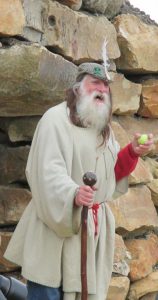
I was present at the official opening ceremony, when the building was blessed by a Druid. Druids strike me as yet another example of English eccentricity. I don’t know if there are any beyond these shores—please let me know if you’ve encountered any!
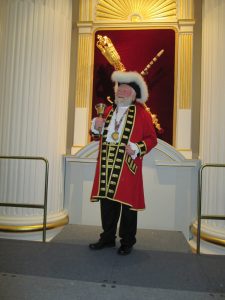
Speaking of ancient institutions that refuse to die, how about that of the Town Crier? Just another example of English eccentricity and our obsession with tradition. In the days before modern media existed, Town Criers would ring their bells and proclaim the latest news loudly in the street, so the townsfolk knew what was going on. The gentleman in the picture is my local Town Crier, who is an international champion—I imagine these competitions must be very noisy affairs. I’d be fascinated to know which other countries send entrants to the World Town Crier contest!
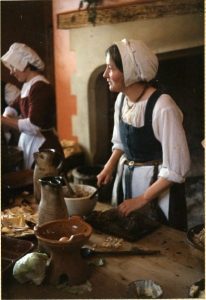
I suppose the most obvious example of my own eccentricity is my involvement in historical re-creation. I know England is not alone in enjoying the re-enactment of major historical battles. Here we revisit the battles of the English Civil War and the US has its own 19th-century Civil War battle re-enactments. I’ve done the martial thing myself—I’m partial to the sword and longbow, and would just love to go bang with a musket if the chance ever arose. But I’ve enjoyed the domestic side of “Living History” too. I’ve spent time in the Tudor period in various guises, including that of a cook in a great manor house. Look away now, vegans and vegetarians—I’m chopping up liver for a Tudor feast!
If I wasn’t eccentric, and wasn’t drawn to other like-minded people, would I ever have become a writer, I wonder? Would I have been able to add colour and depth to my writing, would I have been able to empathise, to imagine what our ancestors might have thought and felt? I don’t know. Yet I feel there is a strong link between eccentricity and imagination. I wonder what other writers think about that suggestion!
Be sure to check out Elizabeth’s newest release
Unmasking the Earl
out now!
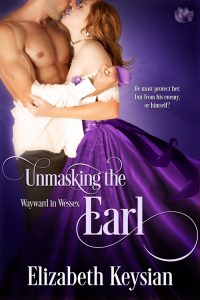 Devastated by the disappearance of his sister, the Earl of Stranraer has gone to extraordinary lengths to find the notorious rake responsible, and enters his household incognito to wreak his vengeance. But his enemy has an unexpected protector—the innocent but headstrong Miss Cassandra Blythe.
Devastated by the disappearance of his sister, the Earl of Stranraer has gone to extraordinary lengths to find the notorious rake responsible, and enters his household incognito to wreak his vengeance. But his enemy has an unexpected protector—the innocent but headstrong Miss Cassandra Blythe.
Cassie is determined to learn the art of seduction. But she is blindsided by her body’s thrilling response to the wrong man—a mysterious servant who shows up at the most inauspicious moments to spoil her lessons in love with warnings of her imminent ruin. When she learns the handsome servant’s identity and the reason for his deception, she resolves to help Stranraer, but only if he abandons his vow to destroy his enemy.
The earl is sorely tempted give the meddlesome beauty a lesson in seduction she’ll never forget. But she turns the tables, and he gets his own lesson in forgiveness…and love.
 Elizabeth Keysian felt destined to write historical romance due to her Cornish descent, and an ancestral connection to the Norse god Odin. Being an only child gave her plenty of time to read, create imaginary worlds, produce her own comics, and write sketches and a deplorably bad musical for an amateur dramatics group.
Elizabeth Keysian felt destined to write historical romance due to her Cornish descent, and an ancestral connection to the Norse god Odin. Being an only child gave her plenty of time to read, create imaginary worlds, produce her own comics, and write sketches and a deplorably bad musical for an amateur dramatics group.
Three decades spent working in museums and archaeology fired Elizabeth’s urge to write, as did living on a Knights Templar estate, with a garage full of skeletons, a resident ghost and a moat teeming with newts.
Elizabeth lives near Bath in England with her partner and cats.

I was once voted the most eccentric person in the room; I think I would have been insulted if I hadn’t been!I agree that the UK does seem to celebrate eccentricity more than many other places–one of the reasons why I decided to live here (plus all those summoning ancestral genes, of course!)
As for costuming…well, I am are searching for some late medieval garb right now for a book signing I’m doing in July at Middleham Castle in Yorkshire. I want a lofty hennin if i can find one (hard to come by it seems!)
And I know that long barrow too…already booked my niche!
Hi Janet! (For Entangled readers who don’t know, this is fantastic author J. P. Reedman, whose Amazon profile you can see @ http://amzn.to/2qHt6cl). Thank you for commenting, Janet.
Best of luck with the book signing. We enjoyed our visit to Middleham Castle a few years ago. You could watch racehorses excercising from one of the towers.
You could probably make your own steeple henin if you had time- just like making a witch’s hat, I imagine! But the two horned ones look rather fine as well, though I do tend to associate them with the Duchess in Lewis Carroll.
I look forward to seeing the pictures of you in your costume!